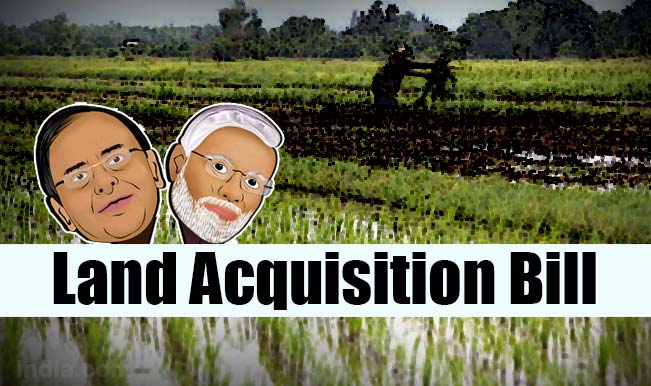
By clicking “Accept All Cookies”, you agree to the storing of cookies on your device to enhance site navigation, analyze site usage, and assist in our marketing efforts Cookies Policy.


In the 2015 pre-Budget session of the Parliament on February 24, the Narendra Modi government introduced the controversial Land Acquisition Amendment Bill in the Lok Sabha amid vociferous protest by almost all opposition parties. While the opposition is branding changes in the current ordinance as ‘anti-farmer’, the government claims that the new amendments will benefit farmers. The Land Acquisition Act was passed by the Manmohan Singh-led UPA government in 2013, and now the Modi government has introduced Right to Fair Compensation and Transparency in Land Acquisition, Rehabilitation and Resettlement (Amendment) Bill, 2015 to make changes in the current Act. (Read: Budget Session 2015: Land Acquisition Bill introduced in Lok Sabha, Opposition walks out)
Here are positive and negative clauses of the new Land Acquisition Amendment Bill:
Pros:
1- The existing Act kept 13 most frequently used acts for Land Acquisition for Central Government Projects out of the purview. These acts are applicable for national highways, metro rail, atomic energy projects, electricity related projects, etc. The present amendments bring all those exempted from the 13 acts under the purview of this Act for the purpose of compensation, rehabilitation and resettlement. Therefore, the amendment benefits farmers and affected families.
2- The proposed changes in the Land Acquisition Act would allow a fast track process for defence and defence production, rural infrastructure including electrification, affordable housing, industrial corridors and infrastructure projects including projects taken up under Public Private Partnership mode where ownership of the land continues to be vested with the government.
3- As per the changes brought in the Ordinance, multi-crop irrigated land can also be acquired for purposes like national security, defence, rural infrastructure including electrification, industrial corridors and building social infrastructure.
Cons:
1- The original Land Acquisition Act, 2013 had a consent clause for acquiring land – industrial corridors, Public Private Partnership projects, rural infrastructure, affordable housing and defence. But after the central government changed, it exempted these five categories from the rule of acquitting land in the Bill tabled on February 24.
2- Social assessment which was mandatory before acquitting land has also been exempted in the Bill tabled in the Lok Sabha.
3- As per the existing law, land will be given back to the farmer if it remains unused for five years. The proposed amendment says the land will be returned only if the specified project on the land fails to complete the deadline.
4- Bureaucrats will be punished if found guilty of violating any clause of the existing Land Act. However, the new clause makes government sanction necessary to prosecute civil servants.
The Land Acquisition Amendment Act, 2015 is currently creating a lot of hassle in Parliament with the Lok Sabha session being adjourned for the same on February 24. With both opposition and ruling parties equally holding their leashes tight on the Land Bill, only time will tell if the amendments in the Land Acquisition Act will be passed or not and whether they will be truly beneficial.
Edited by Shweta Parande
For breaking news and live news updates, like us on Facebook or follow us on Twitter and Instagram. Read more on Latest India News on India.com.